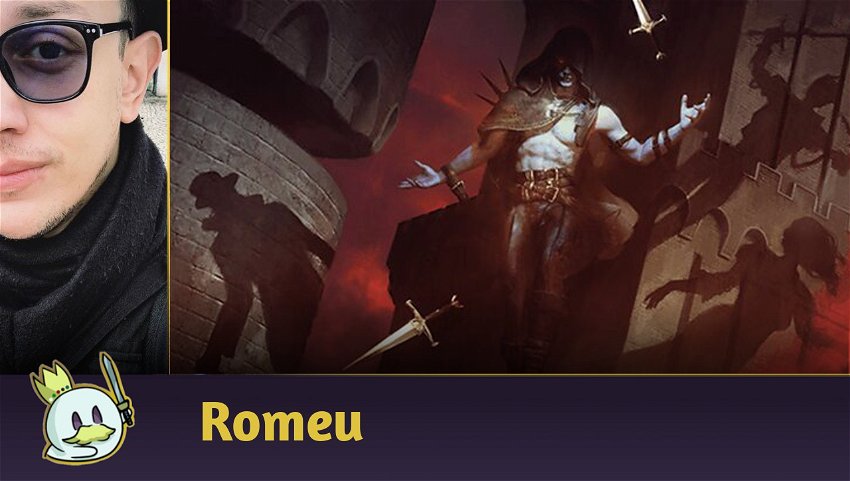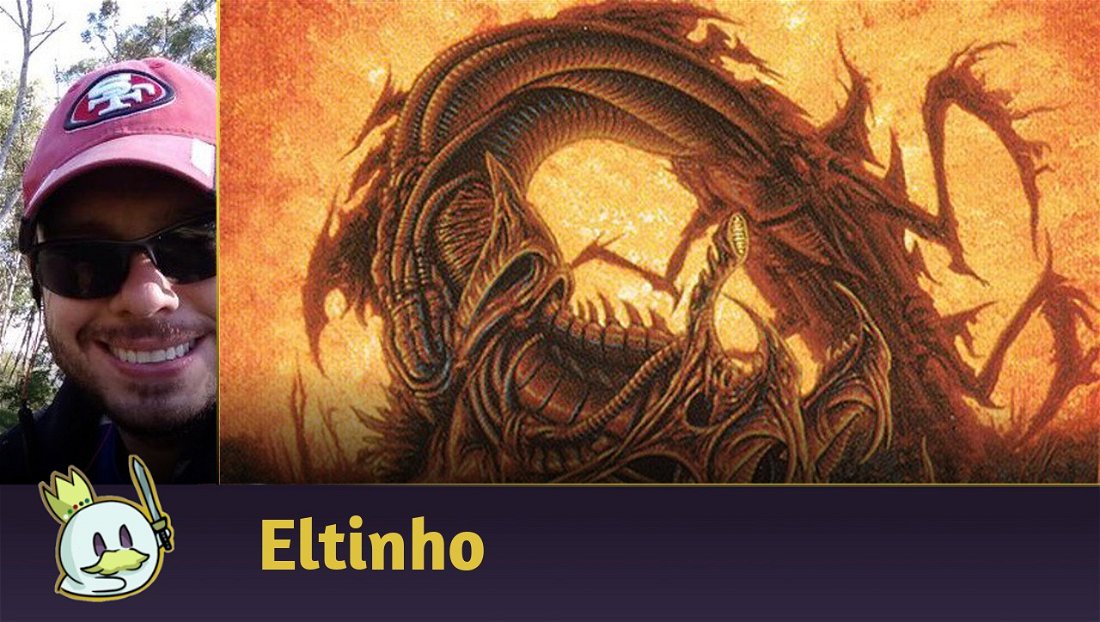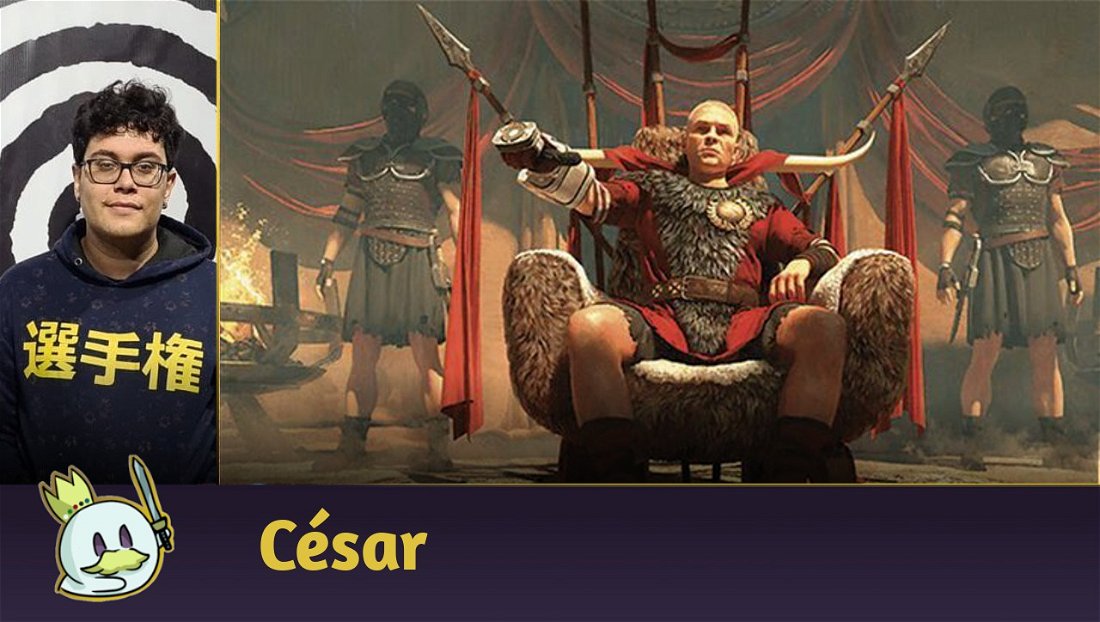Since Seth Manfield's victory at Pro Tour Murders at Karlov Manor, Rakdos Vampires has become one of the main competitors in the Pioneer Metagame, being the most played deck in the format and with impressive results in the Top 8 of Challenges and other events.
After the environment developed with post-Pro Tour results, it has morphed and adapted enough in recent weeks to be considered a distinct version of the version that started its hype, with the inclusion of Archfiend of the Dross and a better established Sideboard to deal with the Metagame.
This is the deck that I have played most in Pioneer and Explorer since the Pro Tour, and in this article, I present a guide on how to play it in the current Metagame!
What is Rakdos Vampires?

Rakdos Vampires is a Midrange and Combo hybrid created by the ChannelFireball team for the Pro Tour Murders at Karlov Manor, where it had one of the highest win rates of the event and placed two copies in the Top - In addition to being the winning deck in the hands of Seth Manfield.
Its strategy consists of using Sorin, Imperious Bloodlord to interact with vampires whose individual quality is already high enough in the format, such as Bloodtithe Harvester and Preacher of the Schism, in addition to cheating Vein Ripper's mana cost, capable of winning the game on its own in a few turns.

The rest of the list is made up of the same shell as Rakdos Midrange, with efficient discards, removals and Fable of the Mirror-Breaker, creating an archetype capable of playing decently in attrition games while taking advantage of an "unfair" combo to speed up its plan and win games for free.
Today, it is one of the best options for competitive Pioneer and has replaced Rakdos Midrange in the Metagame, positioning itself as the most played deck in the format.
The Decklist
This is the updated list, which I have been using for the last week, in Magic Arena ranked games and Pioneer Leagues. There are a few options we can consider in flexible slots, but if you want to test the most reliable version of Rakdos Vampires, this list has everything you need.
The main changes compared to Seth Manfield's list were replacing Smuggler's Copter with Archfiend of the Dross, a mix of Meta Call because it dodges Lightning Axe and other removals from Izzet Phoenix while the artifact is one of the worst cards in this matchup, added to making your plays more impactful: a Vein Ripper from Sorin, Imperious Bloodlord followed by Archfiend of the Dross ends the game the next turn if the opponent does not gain life, making Vampires even more explosive.
The Sideboard has also undergone changes, with the exclusion of complementary threats, as Archfiend does an impressive job in this regard, opening up space for more interaction against certain matchups - In this case, Grafdigger's Cage, Ashiok, Dream Render and an extra copy of Path of Peril.
Maindeck

The reason to play Rakdos Vampires.
Sorin, Imperious Bloodlord enables our most explosive plays while also having several interactions with our vampires, in addition to guaranteeing Lifelink for Archfiend of the Dross and Deathtouch for the Fable of the Mirror-Breaker's token.
In general, keeping it on the board adds a lot of value in each game, but it's not a card we like to draw many copies in a row.
Vein Ripper, while seemingly less impactful than other powerful vampires like Ghalta and Mavren or Lord Xander, the Collector, has a dozen advantages for this archetype: its cost makes casting it a real option if the game goes on, its ability interacts with our proposal to remove creatures and keep the battlefield clean, and its built-in protection remains an excellent Meta Call in a format where Azorius Control remains as a top contender.
Additionally, it sets a very fast clock alongside Sorin and benefits greatly from Bloodtithe Harvester to drain the opponent's life.

Our complementary vampires.
Bloodtithe Harvester does a little bit of everything a Midrange wants: it's a cheap threat, removal, and his token digs deeper for an answer in longer games. Its potential is expanded in Vampires due to the interaction with Sorin and Vein Ripper, in addition to being protected from counterspells with Cavern of Souls.
Dusk Legion Zealot is the “necessary evil” on the list. I've already considered reducing its copies to maximize the number of Preacher of the Schism, but we need sequenced two-drops in fairer games, and it is the best option in its category.
Preacher of the Schism is an excellent value asset in addition to blocking larger threats perfectly well. It's common to need it in attrition games, where the tokens turn into Lightning Helix alongside Sorin and its draws are an excellent source of card advantage when we're ahead in the game.

Archfiend of the Dross absurdly accelerates our clock, trades positively with Arclight Phoenix, can block Vein Ripper and even works as a complementary threat alongside other creatures. Its inclusion is always accompanied by high-risk and high reward, but its pros tend to outweigh its cons.
Fable of the Mirror-Breaker is the other pillar of this archetype. It filters our hand, speeds up the mana to cast Vein Ripper and Reflections of Kiki-Jiki generates absurd value when copying any of our creatures. Never play with less than four copies.

Thoughtseize is a must for any black attrition deck in Pioneer, as it delays the opponent's plans and avoids their most absurd plays. The extra copy of Duress increases the redundancy with which we can take out Sorin, Imperious Bloodlord on the mirror, or deal with Archdruid's Charm against Lotus Field, or even remove Treasure Cruise from Izzet Phoenix in Game 1.
Fatal Push remains the best early game removal in the format, and we have an easy time triggering its revolt with Bloodtithe Harvester, Fable of the Mirror-Breaker or Sorin, Imperious Bloodlord.
Bitter Triumph complements our removals, being the main means of dealing with Planeswalkers like Teferi, Hero of Dominaria. Generally, we will use it by paying its additional cost in life, as it is easy to recover it with Sorin or Vein Ripper.

We seek to maximize the number of duals without opening too many concessions on utility lands. Blackcleave Cliffs and Blood Crypt have priority because they generate mana of both colors without many restrictions in the early game, while Sulfurous Springs and Blightstep Pathway complement them with two or three copies.
Haunted Ridge is left off the list because we don't want lands tapped in the first few turns, as we want to start every game with a sequence of Thoughtseize + two-drop + Sorin, Imperious Bloodlord into Vein Ripper.
When that plan doesn't work, we can go a fairer route where this land would make a little more difference, but I'd still rather have even one more copy of Sulfurous Springs before including the first Haunted Ridge.
The two basic lands help us not lose resources against Field of Ruin and similar effects. It's possible to reduce it to just one copy, but I don't like the idea of being passive to a “Lock” from Control decks when we're trying to reach six mana for Vein Ripper.

Our utility lands.
Cavern of Souls was the other reason for the popularization of Rakdos Vampires. With it, we don't need to worry about No More Lies or other counterspells when we cast Preacher of the Schism or Vein Ripper against Azorius Control and other archetypes on this spectrum.
Mutavault complements our threats, it is another vampire for Sorin, Imperious Bloodlord and allows for some absurd plays alongside the Planeswalker and Vein Ripper, such as transforming and sacrificing it to deal five damage to the opponent, in addition to ensuring more resilience against sweepers.
Hive of the Eye-Tyrant and Sokenzan, Crucible of Defiance complement Mutavault as means of maintaining resilience against many removals, and the manland from Adventures in the Forgotten Realms also functions as graveyard hate.
Takenuma, Abandoned Mire offers recursion, essential for when we need to discard Vein Ripper with Fable of the Mirror-Breaker, or when the match goes on too long, and we need more threats.
Sideboard

Izzet Phoenix is the best deck in the format today and Leyline of the Void is the most definitive answer against graveyards we can have, especially if it is played in the first turns. It is also useful against Greasefang and other strategies aimed at graveyards in Leagues and ranked matches.
Ashiok, Dream Render and Grafdigger’s Cage are the other graveyard hate, and they also stop Chord of Calling and Bring to Light, working against Abzan Amalia and Five-Color Goodstuff.

Duress is a necessity in games where we need to monitor our opponent's actions or ensure that our spells resolve. Some like to include it in Midrange mirrors, but it's not my main recommendation in most attrition matchups.
Liliana of the Veil exhausts the opponent's resources, deals with single creatures and is difficult to respond to in these games, she is essential against Control and Goodstuff.

Damping Sphere is the “necessary evil” to play against Lotus Combo, but it also works with archetypes that generate an abundance of mana or want to sequence many spells in a single turn, such as Quintorius Combo.
Path of Peril deals with Aggro lists aimed at small threats while maintaining its usefulness against Abzan Amalia, where many of its creatures fall into its scope.
Alternative Options
I wouldn't make any changes to the list considering the current Metagame, but there are some cards I've tested at other times.

Smuggler’s Copter lost its space in Rakdos Vampires and I believe it will not regain it as long as the best decks in the format can block or deal with it easily.

In addition to being a Vampire, Bloodthirsty Adversary allows a mix of greater attrition with its ability, allowing us to reuse Thoughtseize, Bitter Triumph and Sideboard cards like Path of Peril.
Alongside Kolaghan's Command, which doesn't seem to have good results today since Rakdos Sacrifice and Greasefang are on lower tiers, the red vampire allows us to have even more rich as we can “recycle” both cards with one another, returning Bloodthirsty Adversary to our hand and casting it to play Kolaghan's Command from the graveyard - Replicating the classic Modern play with Snapcaster Mage.
Kolaghan's Command also serves to return a Vein Ripper that has been discarded or destroyed, in addition to dealing with Smuggler's Copter, Arclight Phoenix, Bloodtithe Harvester and even Amalia Benavides Aguirre before she gains counters.
In the current version, I prefer Archfiend of the Dross in these flex slots, as its clock is respectable, and it interacts with the rest of the deck, but the combination of Bloodthirsty Adversary and Kolaghan's Command can be useful at other times.

Kalitas and Sheoldred are other options for the spaces that currently belong to Archfiend of the Dross, and both seem too slow for the current Metagame, despite their qualities. It might be worth having a copy of each or two copies of Sheoldred, the Apocalypse if you really want to punish your opponent's draws, but I would still bet on Archfiend as the main complementary threat.

Rending Volley is decent on the Sideboard if you feel like you need more spot removals instead of sweepers, but even the recent rise of Boros Heroic makes Path of Peril a more coherent option with the current Metagame.
Along the same lines, Extinction Event is excellent for the Mirror and functional against Izzet Phoenix, but four mana is a relatively high cost for games against aggressive lists, and the current Metagame rewards “lock” cards like Grafdigger's Cage and Ashiok, Dream Render instead of one-turn answers.
Sideboard Guide
Izzet Phoenix
IN

OUT

Rakdos Vampires
IN

OUT

Azorius Control
IN

OUT

Lotus Combo
IN

OUT

Abzan Amalia
IN

OUT

Rakdos Midrange
IN

OUT

Boros Heroic
IN

OUT

Boros Convoke
IN

OUT

Niv to Light
IN

OUT

Waste Not
IN

OUT

Izzet Ensoul
IN

OUT

Azorius Spirits
IN

OUT

Quintorius Combo
IN

OUT

Rakdos Sacrifice
IN

OUT

Jeskai / Izzet Creativity
IN

OUT

Conclusion
That's all for today!
If you have any questions or suggestions, feel free to leave a comment!
Thanks for reading!














— Kommentare 0
, Reaktionen 1
Sei der erste der kommentiert